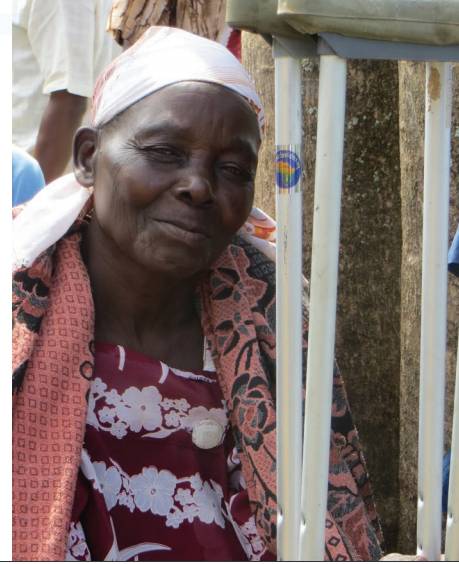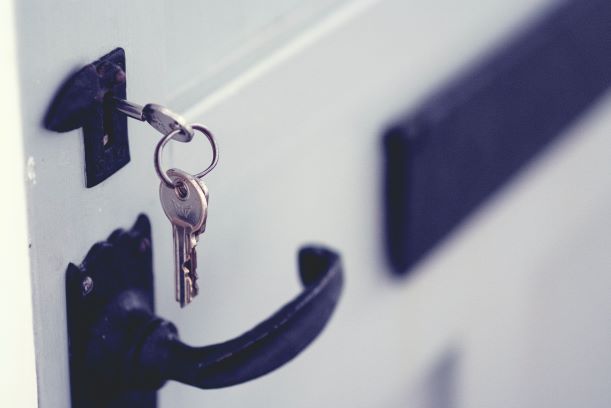Freedom. It is a concept we have been focused on a lot in the last year. When our freedom to do what we desire without government oversight and to travel without boundaries was hijacked by COVID-19, we quickly realized how much we value our ability to live without restrictions. Fortunately, for most of us, this is a temporary, finite situation we trust is coming to a close. However, what if, like so many disabled individuals, we experienced a loss of independence daily? What if the challenges we faced were not about curtailing our freedom to attend a social gathering or favorite restaurant, but instead about the loss of our ability to walk across the room or go to the market for food?
This month RPM is pleased to help tell the story of one individual who has taken up the cause for those trying to cope with the immense burdens of physical disabilities and poverty. Meet Dave Talbot – our friend, founder of Crutches4Africa, and a true hero!
A Mission to Promote Independence
Seeing first-hand the basic, daily struggles of disabled people in Africa 15 years ago was all the motivation Polio survivor David Talbot needed to dedicate his life to making a difference. He and his wife, Candice, were called to begin Crutches4Africa (Crutches), a global nonprofit that collects used, discarded mobility devices for distribution to disabled families living in impoverished conditions in Africa.
“Mobility is the most basic element of freedom,” says Talbot. “When someone has lost their mobility, they can’t go to school, they can’t walk to retrieve water and food for their family, they can’t take care of their basic needs. In fact, they’ve lost the core to their lives.”
Driven by Dave’s philosophy that “mobility should be free,” the Talbots and a strong corps of volunteers, including Rotarians nationwide, have given more than 150,000 pieces of equipment to those struggling with mobility in 19 African countries including Kenya, Uganda, Nigeria, and Zambia. In recent years, C4A also has helped the disabled in Pakistan and Mexico and eight other countries outside of Africa.
A Used Crutch or Baby Stoller Can Be a Life-Changer
Crutches relies on donations of used crutches, walkers, wheelchairs, prosthetic limbs, leg braces, bike trailers and baby joggers (for those who are not strong enough to sit in a wheelchair), many times thrown away by their owners after a short-term or at the end of physical rehabilitation. Crutches recycles these devices and ensures that their usefulness lives on in the hands of those who need them the most. In many cases, the people Talbot helps would otherwise continue to drag themselves across the floor, use tree limbs for make-shift crutches, or be transported in crude fashion in a wheelbarrow. A leftover crutch or a bike trailer can be a lifesaver.
Talbot’s nonprofit also depends on monetary donations to sustain the program. There are consolidation hubs across the United States where equipment is amassed from individual collection points. Then volunteers load 40-foot-long containers for overseas transport and delivery of devices to those in need. Talbot says it costs $3 per item for shipment overseas and the contents of the containers typically reach recipients within six to eight weeks from when they are loaded at port.
2020 Brought Dire Consequences to Disabled Villagers
While there are always logistical hurdles to shipping the containers to remote areas, the challenges C4A faced in 2020 were significant. With countries across the globe on “lock down” due to the pandemic, shipping ports and most modes of transportation came to a halt. With markets closed and no public transportation, many disabled villagers were on the brink of starvation. Talbot and his team stepped in and added project Refresh to their Crutches4Africa initiative. As a result of creating awareness and raising funds, Refresh fed 5,000 people, including 198 disabled children from an orphanage in Uganda. By the end of last year, as some restrictions eased, “C4A” remarkably shipped three containers – one to Mexico and two to Africa.
Local Volunteers Make a Critical Difference
While C4A reaches the most remote areas of the African continent, its center of operations is in the Talbots’ home in Denver. Dave has received substantial support from across Colorado, and through partnerships with the mountain area Rotary clubs. There is a collection spot for used equipment outside the Rocky Mountain Spine & Sport Physical Therapy at 1262 Bergen Parkway in Evergreen. Talbot is hopeful to find another collection location in the area, ideally in the El Rancho area near I-70.
Volunteers are always a critical component to the program, and a big help to Dave, who faces health consequences of post-Polio syndrome. If you are interested in learning more about Crutches4Africa and how you can help, reach out to Talbot directly at c4a@crutches4Africa.org. or go to www.crutches4Africa.org. and be sure to see the impact of Crutches in its short, compelling video footage.


